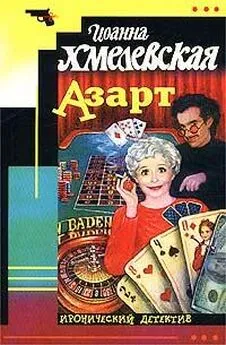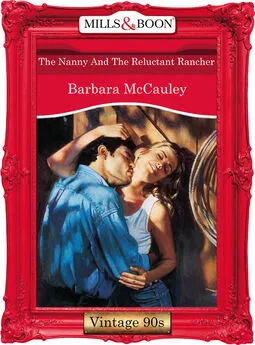Barbara Hambly - Dead water
- Название:Dead water
- Автор:
- Жанр:
- Издательство:неизвестно
- Год:неизвестен
- ISBN:нет данных
- Рейтинг:
- Избранное:Добавить в избранное
-
Отзывы:
-
Ваша оценка:
Barbara Hambly - Dead water краткое содержание
Dead water - читать онлайн бесплатно полную версию (весь текст целиком)
Интервал:
Закладка:
Could Queen Régine hear them, he wondered, down in the terrible dark of the hold? Was she able—he couldn't imagine how—to come out on deck, to move about silent in the night, seeking him like a vengeful ghost? I curse you to the ruin of all you touch, and the destruction of all you hope.
All he hoped stood a pace from ruin now, that was for certain.
January shivered, and fished in his pocket for the comforting touch of his rosary. He'd lived in Paris, and read the works of Locke and Hume, Kant and Hegel, and had listened to the talk of students in the cafés. He would no more have admitted to belief in a half-crazed old freedwoman's curse than he'd have worshipped God by cutting a lamb's throat and splashing blood on the altar. As a child he'd been told, by old Père Antoine, that the strength of God was stronger than any curse of African devils.
But he still felt safer on the upper deck, where he knew Queen Régine could not come.
After supper January again borrowed Eli's guitar, and played duets with Hannibal for dancing and gaiety in the Main Saloon. There was, he reflected, singularly little glee that night. Led by Mrs. Fischer, the women definitely and completely ostracized Theodora Skippen, who retreated a number of times out onto the promenade to comfort herself, and returned with head held high and a distinct whiff of brandy on her breath. Mr. Weems, still apparently under orders not to advertise his association with Mrs. Fischer, remained in a corner, playing cribbage with Quince and listening to the handsome young man's interminable encomia of Vegetarianism and the Thompsonian system of health through the consumption of honey and onions. Mrs. Fischer for her part kept a wary eye on January and Hannibal, and by the way Mrs. Tredgold avoided the fiddler and Mrs. Roberson drew her daughter away from him, January guessed Mrs. Fischer had been spreading a little gossip about him in the Ladies' Parlor by way of guaranteeing an upper hand.
Still, this left four ladies who consented to dance in a set with one another—Mrs. Roberson, Mrs. Tredgold, Mrs. Fischer, and sixteen-year-old Dorothea Roberson—so the gentlemen took it in turns to dance with them, though the gluttonous Dodd was beginning to demonstrate a disposition to disappear out onto the promenade every time Miss Skippen did. January only hoped the elderly Bostonian's wealth would distract the girl from her smoky glances at Hannibal, but by the way she returned from such encounters with red cheeks and angry eyes, he didn't hold out much hope.
Mr. Souter, not yet on duty, buttonholed Colonel Davis in a corner with a lengthy account of the pilot on the Louisville Belle, who used to navigate the bend above Poverty Point in pitch darkness by ringing the bell and listening for the barking of Rush Thompson's dog—that was Rush Thompson whose brother had run a wood-yard at Kentucky Bend, and had married a woman named Clanton who'd had an affair with Aaron Burr supposedly—the dog's name was Henry Clay. Henry Clay would always bark at the sound of a steamboat bell, and the day after Henry Clay died of being gored by Enoch Andrews's bull, Melchizadek, who had one bent horn and had been calved by this Spanish feller, Dorado's, cow Elizabeth, that was stole from him by river pirates and later he got her back—the day after Henry Clay died the pilot ran the Louisville Belle aground in the fog because he didn't hear the dog bark on the bank. They did manage to save the Belle 's engines, though, and put them on a new boat, the Louisville Pride, whose pilot was . . .
Mr. Byrne engaged the two black-clothed Jews who'd come on at Natchez in a game of vingt-et-un. Mr. Cain simply settled back to listen to the music, his yellow eyes half shut like a sleepy cat's and his face transformed by an expression of profound and peaceful joy.
Hannibal's fiddle floated light over the notes of the Marlborough Cotillion, the silk of skirts swishing over the straw matting on the floors.
“Tell you what I'll do, Cain,” drawled Gleet's whining voice. “I'll give you seven hundred for that boy of yours, He-ro-do-tus, plus those two young 'uns I picked up in Natchez, Joe an' Jane.” The slave-dealer spat, not even bothering to aim for the cuspidor. “Now, you can't say you been offered a fairer deal than that. I got a customer in Memphis, a steady customer, always lookin' for smart boys like that 'Rodus, an' you can't tell me he ain't trouble to you.”
What Cain's reaction was to this, January didn't know, because movement in the doorway drew his eye; Thu pausing there to look back at the two slave-dealers, his thin face impassive but his eyes wary and listening. In the dim light of the overhead lanterns his face looked suddenly very African, despite its fair complexion, the narrow Fulani bone-structure thrown into sharp relief.
And January understood, as if he'd known it all along: Herodotus and Thucydides are brothers.
Then the steward stepped through the door and was gone.
Through the following day, as the Silver Moon thrashed through the endless tangle of loops, false bends, chutes, snags, and bayous that surrounded the mouth of the Arkansas River, January watched the men of Cain's coffle, and was almost certain he was right. It wasn't merely the tribal similarity of bone-structure and features. Both young men had the same gestures, the same ways of walking, the same expressions. The way Thu folded his arms and nodded when Mrs. Roberson gave long and elaborate instructions about bringing the Parlor tea-things was mirrored in the angle of 'Rodus's head when two of the boys in Gleet's coffle asked him about whether they'd be unchained if the boat snagged and sank.
Does Cain realize? January wondered, watching in fascination from behind the piled cordwood as the Silver Moon lay behind yet another bar while the leadsman took soundings in the skiff. Thu was passing along the starboard promenade, and stopped to trade a word with the men of Cain's coffle— How can he not see?
But whites, January had found, frequently had trouble distinguishing the features of blacks.
And the man might have no knowledge of ancient Greek historians. It was common, January knew, for masters to name slave children the way they named dogs, for characters in literature or the Bible, or for sets of things: Faith, Hope, and Charity for girls, Marquis and Baron and Duke for boys. There were two boys in Gleet's coffle, brothers fifteen and sixteen years old, named, of all things, Jeremiah and Lamentations, testifying to some white man who knew the names of the books of the Bible but hadn't the slightest idea what they meant.
Would it matter, he wondered, if Cain knew?
“Quarter twain!” called out the leadsman, and Molloy's voice could be heard roaring curses from the pilot-house. “Quarter less twain!” The brown water barely stirred among the black army of snags that lay between the boat and the shore, the drips from the paddle like diamonds in the burning sunlight. “Quarter less twain!”
Jubal Cain came walking down the promenade, glancing sharply around him; Thucydides turned at once and left, passing the white man with neither a glance nor a word.
They tied up at the Vicksburg landing at midnight; Weems and Mrs. Fischer disembarked at once. From the shadows of the boiler-deck promenade, January took note of their luggage as they had it loaded onto a dray: three trunks this time, and two heavy portmanteaux. Sophie stood back, laden down with valises. “Looks like business,” murmured Hannibal, standing beside January in the darkness, and Rose replied softly, “It's supposed to.”
Across the muddy flat of the landing, a gaping space now studded with boxes, bales, and deadfall debris washed up with the river's summer retreat, lanterns burned even at this late hour in the gaggle of barrooms, whorehouses, and gambling-dens that clustered at the foot of Vicksburg's tall hill. Shouts of drunken anger floated on the dark air that hummed with mosquitoes and reeked of thrown-up booze and untended privies. Since the big vigilante crackdown the previous year at Natchez, Vicksburg had, if anything, a worse reputation than the larger port.
“Well, they can't very well board again before daybreak without drawing attention to themselves.” January shrugged his rough jacket straight: the sorry garment he'd gotten from Levi Christmas could pass him as either slave or a laboring freedman. He felt in his pocket again for the pass Hannibal had written him. “If they check into a hotel, I'm guessing the night porter will just store the trunk somewhere until more staff arrives in the morning. It may be another ruse, but we can't afford to assume that it is. There they go.” Turning, he clasped Rose hard in his arms. As he kissed her he seemed to hear a whispering voice hiss in his ear: Marinette-of-the-Dry-Arms will tear your woman from your arms . . . . “Whatever you do, stay on the boat. We'll get you word as soon as we can.”
As at Natchez, it was no difficult matter to follow Weems's cab up the hill. Clay Street was nearly as steep as Natchez's bluff, and the hill, though set a little farther back from the river, was just as high, one of the long line of bluffs that rose like a wall on the east side of the river. Once away from the torchlight and clamor of the red-light district along the landing, Vicksburg, in its darkness and silence, seemed a much more American town than Natchez. Though the town was only twenty years old, it already had showy houses, pillared like Greek temples in the style favored by Americans: cotton-planters whose lands lay across the river on the flat, fertile, and smotheringly hot delta plain.
The Majestic Hotel was of this style, new and freshly-painted, with very young elm-trees planted on either side of its door. The night porter who opened for Weems and Mrs. Fischer had a gimcrack and brightly-painted air to him, too, fresh-faced and busy. From the darkness beneath the oak-trees across the street, January left Hannibal to watch the front door and followed the cab around to the rear yard. There Sophie got down, saw to it that the trunks were put in a locked shed, tipped the porter, and went inside, carrying her own modest bundle of clean apron and fresh petticoat.
There was no gate on the yard. January stepped back out of sight as the cab passed him—the single lantern above the hotel's rear door threw about as much light as a tallow candle—then slipped around back to Adams Street, where Hannibal waited under the oaks of the vacant lot.
“They've taken a room.” The fiddler pointed to a curtained window now glowing with the illumination of lamplight within. “Goodness knows what name they gave. The merchant, to secure his treasure / Conveys it in a borrowed name. . . . Though they may in fact just spend the night playing backgammon, as they cannot, as you pointed out, get back on the boat without drawing attention to themselves until morning. Are the trunks back there?”
“In a padlocked shed.”
“ Two massy keys he bore of metals twain / The golden opes, the iron shuts amain. I shall return 'ere the leviathan can swim a league. . . . though I wonder now whether that's in low water or high. For some must watch, while some must sleep / So runs the world away. . . .” He darted across the street and vanished like a wayward elf into the darkness.
The lamp upstairs was still burning when Hannibal re-materialized at his side.
“ Stand, and unfold yourself, ” whispered his voice from the shadows, and quite properly January gave back the next line from the opening of Hamlet,
“Long live the king. You come most carefully upon your hour.”
Читать дальшеИнтервал:
Закладка:








